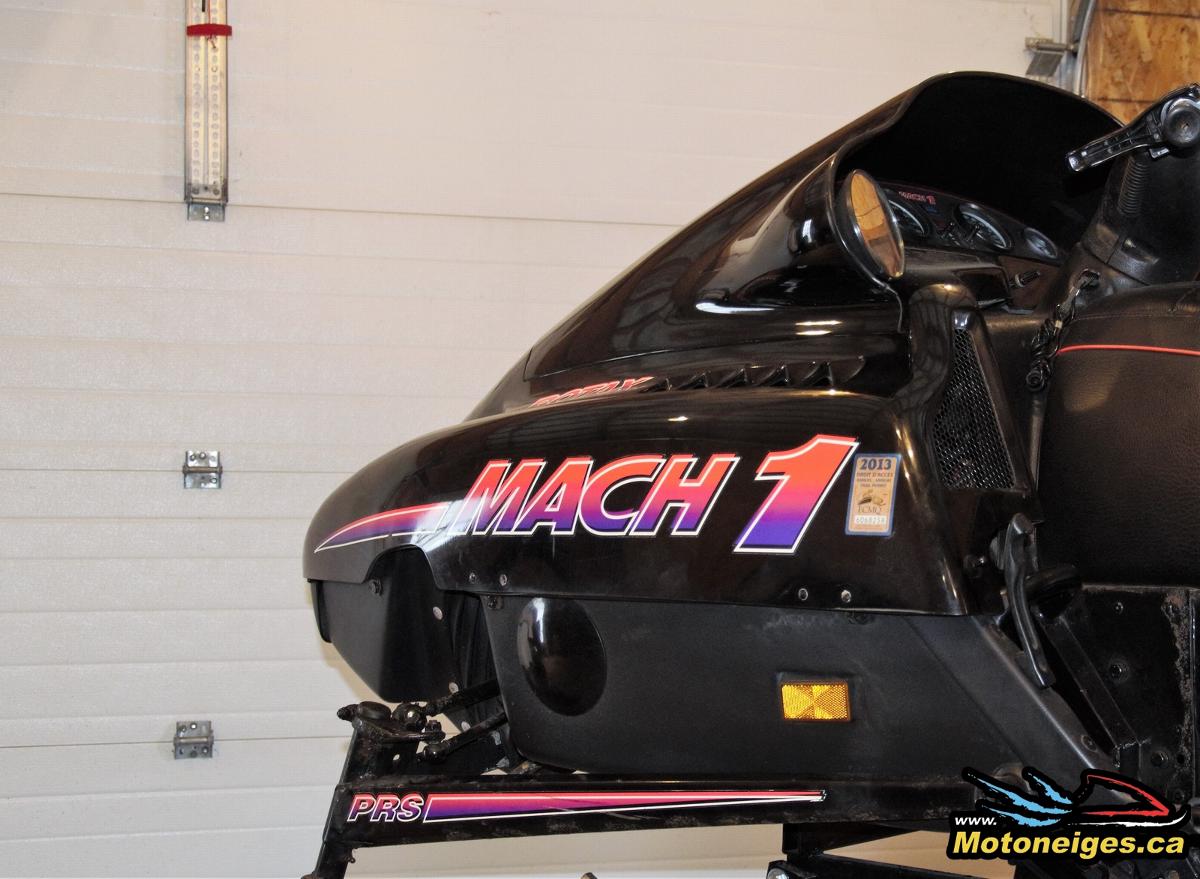Table of contents
Toggle- A Rebuild by Sledmagazine.com – Part 3: Two small pulleys and a lot of work!
- 1994 Ski-Doo Formula Mach 1
- Adjustment in 6 positions of the TRA engine pulley
- TRA engine pulley before refurbishment
- Cracked interior fixed plate
- Cracked interior fixed plate
- Runner and o-ring completely destroyed. The rollers will also be changed
- Abnormal wear of the cams. A 228 used cam also beside it to show the difference in wear
- Abnormal wear of the runners
- Freshly sandblasted parts, new cams and rollers
- Inside the external plate with the new [used] cams installed Inside the plate with the new [used] rollers installed Fixed half-pulley Difference between pulley before and after restoration
- Installation of the pulleys using the torque wrench and work arm to lock everything in place
A Rebuild by Sledmagazine.com – Part 3: Two small pulleys and a lot of work!

1994 Ski-Doo Formula Mach 1
One aspect that should not be overlooked in the performance of a snowmobile is the good operation of the pulleys. Be it for a commitment to take off smoothly, for accelerations, peak speed and even fuel economy, the driving and driven pulleys must be able to work freely. We are in 2019, and this model was marketed in 1994. Not knowing the former owners and the maintenance this Mach 1 has had over the years, I can expect the worst of this snowmobile which lived through 25 seasons of abuse.
To have access to the two pulleys only, a special pulley extractor (Puller) is required to remove the drive unit. This tool is available from your Ski-Doo dealer or in the Kimpex catalogue. The secondary pulley, only needs a standard key to be removed.
Let us start with a small history lesson on the primary TRA engine pulley. This abbreviation means Total Range Adjustable. Why Adjustable? Because this pulley allows, with the help of small cams to adjust in increments of 200 tr min, the level of performance according to your preferences and riding conditions. 6 possible positions could be changed quickly in 5 min on the side of the trail. This pulley requires no lubrication, and according to the advertising flyers of the time, it reduced the wear of the belts and increased the duration of its life.

Adjustment in 6 positions of the TRA engine pulley

TRA engine pulley before refurbishment
Once the driving pulley is removed, you must now remove the mobile part from the attached part. Simple task, since you only need to pull on the upper part and slide it out of its runners and then remove with the help of a rubber sledgehammer the 2 main sections. I am quickly noticing that not only all worn parts must be changed, but that the fixed bearing needs to be changed too. By carefully examining the interior fixed plate of the engine pulley, I can observe a crack in the aluminum. At the speed that the engine runs, I do not even want to imagine what could happen if it splits into pieces. Not only could it completely destroy the inside of the snowmobile but could also cause serious injury to the driver. A replacement of this portion of the pulley is therefore necessary. Since this type of pulley was manufactured for several models over several years, it was not too difficult to quickly find a used replacement part in good condition.

Cracked interior fixed plate

Cracked interior fixed plate
Let’s get back to the wearing parts. Once more, the first observation is not very positive. A complete rebuild will be required starting with the small o-rings and runners. Fortunately, these parts are not very expensive and are still available at Ski-Doo. The small rollers will receive the same treatment since they are also too worn to be recovered. In examining further, the cams are not in the best condition. Usually, they should be completely smooth with a gentle slope, but these have bad cracks on their surface. We were also able to replace them with other used ones, in good condition. The secondary pulley is in better condition. Only the runner will need to be replaced since they are abnormally worn or simply broken into pieces.
We now have all the parts to begin to reassemble everything, some are new, and others are used as not to make the bill go up too much. Before putting everything in place, I want to give the two pulleys a facelift. I could simply wash the parts in depth, but to restore the gloss of the past, the technique used is to sandblast with glass dust. Using overly aggressive grains could damage the components, and the finish will be too rough. Also, be careful not to touch the parts where the belt touches. The external part of the driving pulley can be polished using fine sandpaper.

Runner and o-ring completely destroyed. The rollers will also be changed

Abnormal wear of the cams. A 228 used cam also beside it to show the difference in wear

Abnormal wear of the runners
Once completed, the final result is quite impressive. The performance and look are now back. I cannot imagine how this Mach 1 must have been driven with both components worn to the bone. The power was certainly not transmitted to the track correctly … now, we only need to reassemble it all. The engine pulley must be tightened with a 105NM (77 FT-LB) torque wrench, and it is advisable, once installed, to run the engine in acceleration and braking on a bracket to lift the track off the ground a few times and recheck the torque of the nut.

Freshly sandblasted parts, new cams and rollers

Inside the external plate with the new [used] cams installed 
Inside the plate with the new [used] rollers installed
Fixed half-pulley

Difference between pulley before and after restoration

Installation of the pulleys using the torque wrench and work arm to lock everything in place


